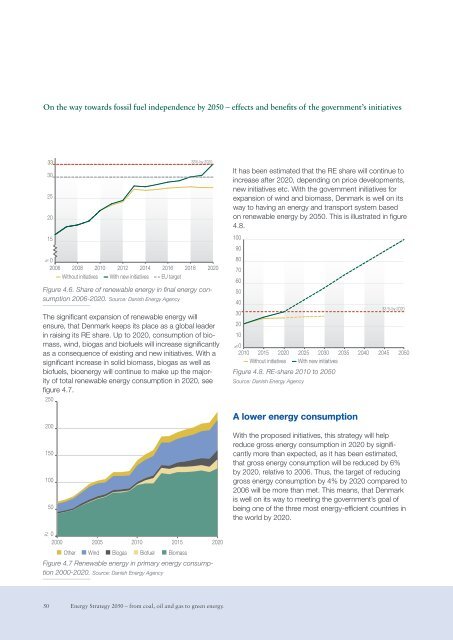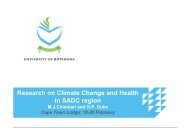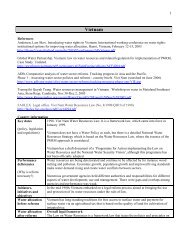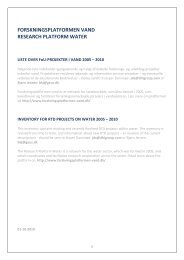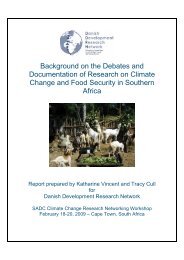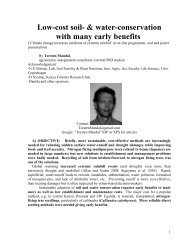energy strategy 2050 - Energy Europe
energy strategy 2050 - Energy Europe
energy strategy 2050 - Energy Europe
You also want an ePaper? Increase the reach of your titles
YUMPU automatically turns print PDFs into web optimized ePapers that Google loves.
On the way towards fossil fuel independence by <strong>2050</strong> – effects and benefits of the government’s initiatives<br />
%<br />
33 33% by 2020<br />
30<br />
25<br />
20<br />
15<br />
0<br />
2006 2008 2010 2012 2014 2016 2018 2020<br />
Without initiatives With new initiatives EU target<br />
Figure 4.6. Share of renewable <strong>energy</strong> in final <strong>energy</strong> consumption<br />
2006-2020. Source: Danish <strong>Energy</strong> Agency<br />
The significant expansion of renewable <strong>energy</strong> will<br />
ensure, that Denmark keeps its place as a global leader<br />
in raising its RE share. Up to 2020, consumption of biomass,<br />
wind, biogas and biofuels will increase significantly<br />
as a consequence of existing and new initiatives. With a<br />
significant increase in solid biomass, biogas as well as<br />
biofuels, bio<strong>energy</strong> will continue to make up the majority<br />
of total renewable <strong>energy</strong> consumption in 2020, see<br />
figure 4.7.<br />
250<br />
200<br />
150<br />
100<br />
50<br />
It has been estimated that the RE share will continue to<br />
increase after 2020, depending on price developments,<br />
new initiatives etc. With the government initiatives for<br />
expansion of wind and biomass, Denmark is well on its<br />
way to having an <strong>energy</strong> and transport system based<br />
on renewable <strong>energy</strong> by <strong>2050</strong>. This is illustrated in figure<br />
4.8.<br />
100<br />
90<br />
80<br />
70<br />
60<br />
50<br />
40<br />
30<br />
33 % by 2020<br />
20<br />
10<br />
0<br />
2010 2015 2020 2025 2030 2035 2040 2045 <strong>2050</strong><br />
Without initiatives With new initiatives<br />
Figure 4.8. RE-share 2010 to <strong>2050</strong><br />
Source: Danish <strong>Energy</strong> Agency<br />
%<br />
A lower <strong>energy</strong> consumption<br />
With the proposed initiatives, this <strong>strategy</strong> will help<br />
reduce gross <strong>energy</strong> consumption in 2020 by significantly<br />
more than expected, as it has been estimated,<br />
that gross <strong>energy</strong> consumption will be reduced by 6%<br />
by 2020, relative to 2006. Thus, the target of reducing<br />
gross <strong>energy</strong> consumption by 4% by 2020 compared to<br />
2006 will be more than met. This means, that Denmark<br />
is well on its way to meeting the government’s goal of<br />
being one of the three most <strong>energy</strong>-efficient countries in<br />
the world by 2020.<br />
0<br />
2000 2005 2010 2015 2020<br />
Other Wind Biogas Biofuel Biomass<br />
Figure 4.7 Renewable <strong>energy</strong> in primary <strong>energy</strong> consumption<br />
2000-2020. Source: Danish <strong>Energy</strong> Agency<br />
PJ<br />
50<br />
<strong>Energy</strong> Strategy <strong>2050</strong> – from coal, oil and gas to green <strong>energy</strong>.


